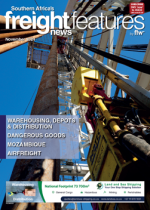The logistics industry in southern Africa continues to navigate hurdles related to foreign exchange, as several countries grapple with the issue.According to José Nchumali, CEO of integrated logistics service provider LMN, the country has faced erratic availability of foreign currency over the past year, leading to long queues for payments from abroad. This shortage has affected import operations and supply chain ef f icienc y.“The scarcity of funds has major implications for logistics,” he told Freight News. “Importers are struggling with delays due to forex issues, which hamper overall supply chain performance.”But, with the government announcing plans to address the challenge, Nchumali said the overall outlook for the logistics sector was extremely positive. “There are ongoing talks about plans to improve the export-import balance and visa processes. Ports such as Beira and Maputo continue to experience increased volumes – all of which bodes well for Mozambique.”With ports in South Africa dealing with major congestion issues, the Port of Maputo has also established itself as a worthy alternative. According to Nchumali, it is, however, critical that Mozambique build on the current momentum. Calling for better integration between ports and surrounding industries, he said it was just as critical that the ports continued to invest in their equipment.“Investment in transport infrastructure is just as critical. Plans are under way to build and improve road networks, though progress has been slow due to delays in World Bank funding related to election periods. We need a comprehensive road network linking the entire country,” Nchumali emphasised. “More investment in infrastructure is essential.”With growing interest in Mozambique’s oil and gas sector, the country is on the brink of a significant transformation. “We’re witnessing the rising attraction of Mozambique. To capitalise on this momentum, it’s crucial that we ensure projects are successfully launched and infrastructure investment is prioritised,” said Nchumali.He added that from a regional perspective there was also a need for improved integration and more harmonisation.Local knowledge remains a key asset in reducing costs and enhancing efficiency. According to Nchumali, increased use of local companies within the value chain to stimulate economic growth is an important consideration. “Local companies should have more opportunities to contribute and grow.” LV

